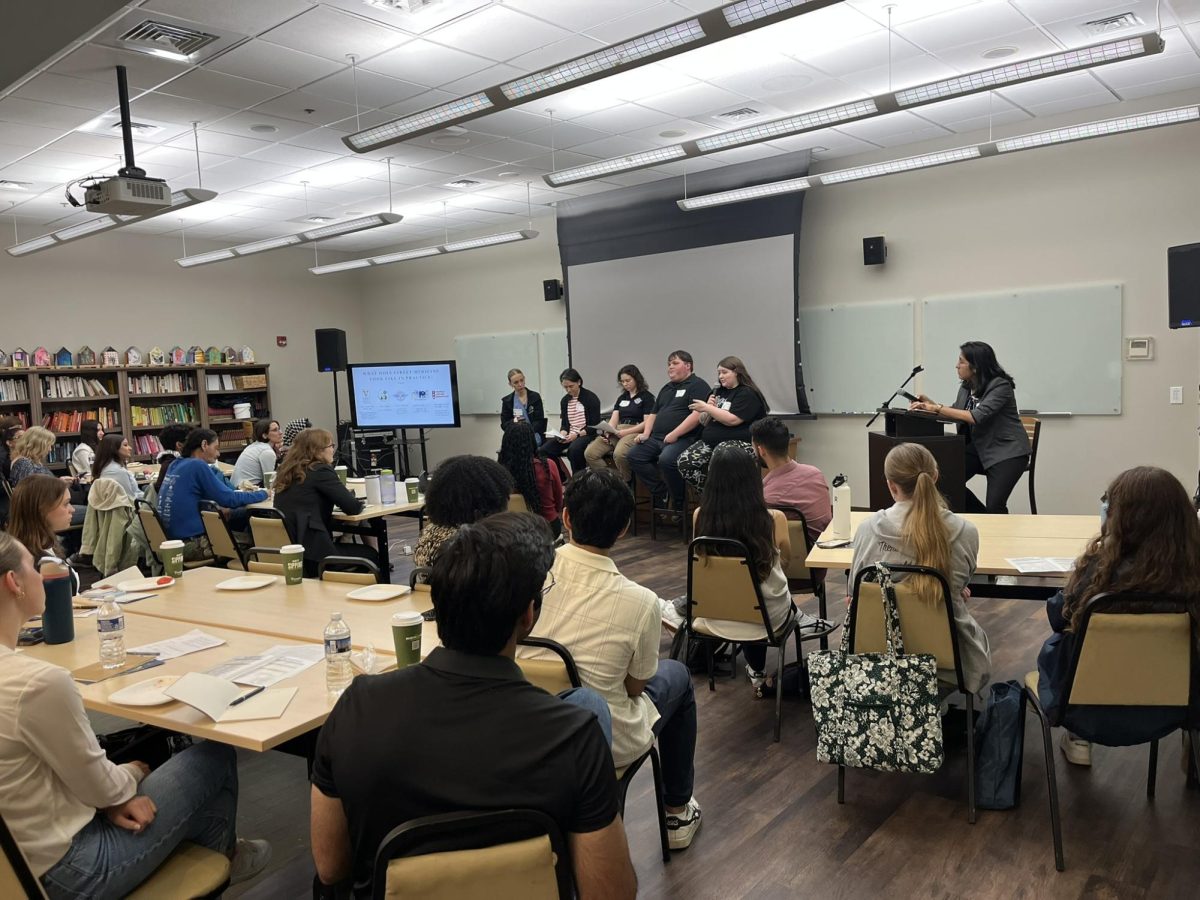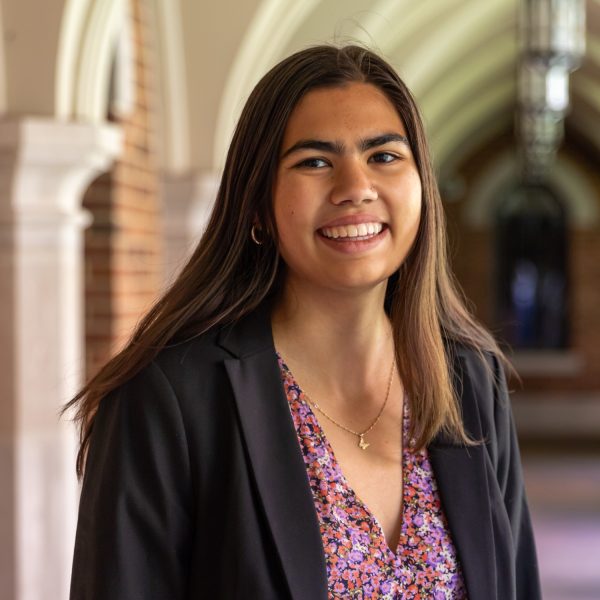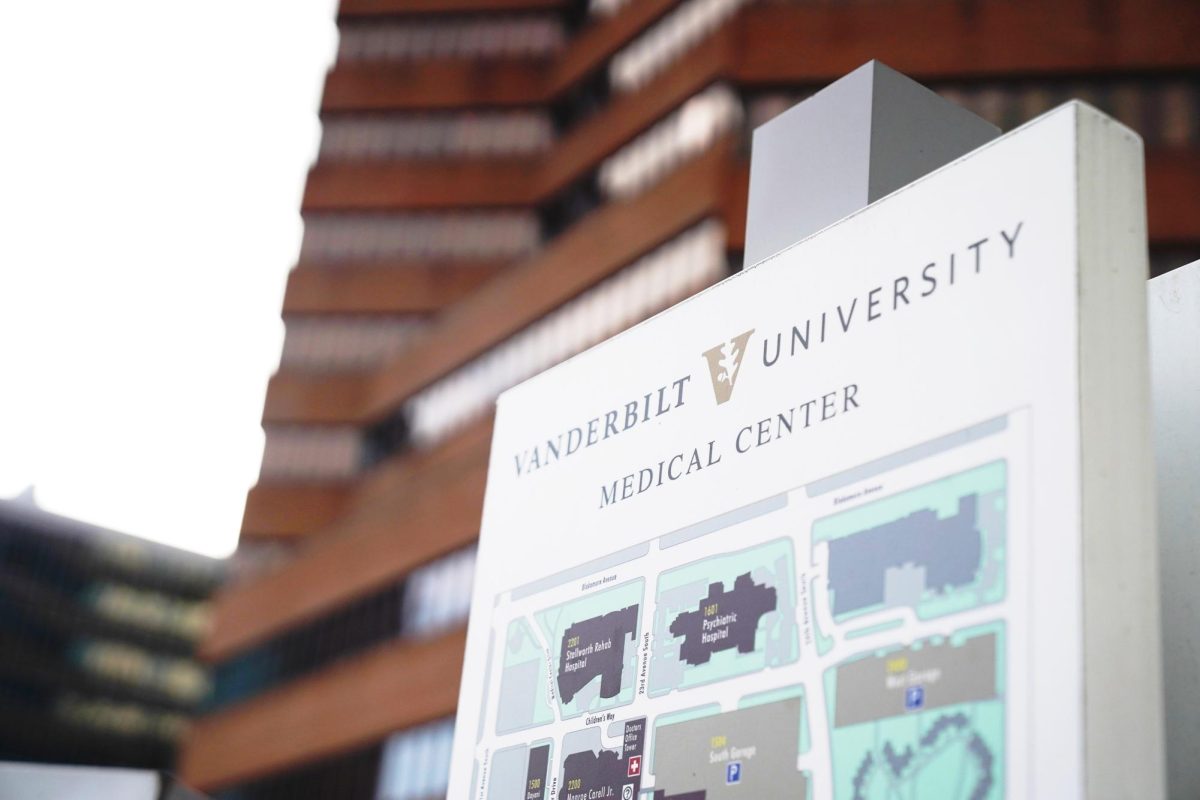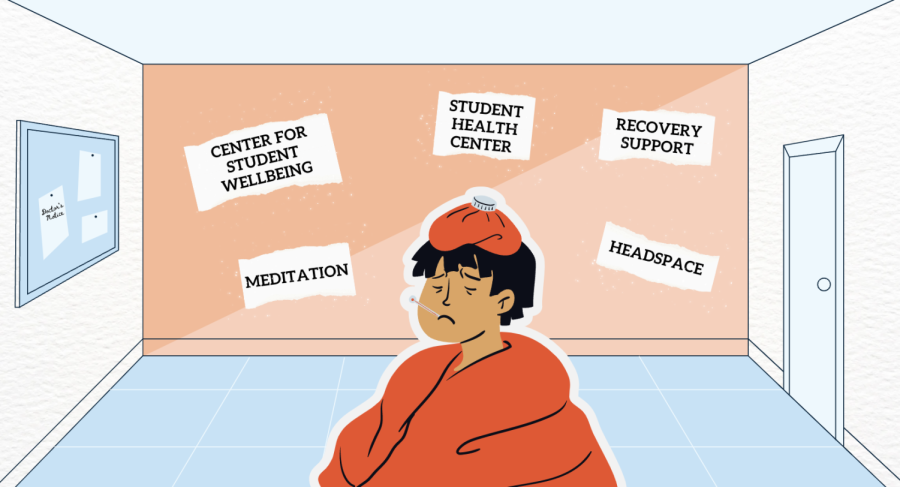Vanderbilt’s second annual Homeless Health Conference took place on April 5 at the Room In The Inn services center, bringing together local stakeholders, community nonprofits and healthcare professionals. Facilitated and planned by Vanderbilt’s Homeless Health Conference Executive Committee, participants engaged in direct community service, hands-on clinical skill training, narrative workshops and roundtable discussions on the best policies and practices when serving populations experiencing homelessness.
Themed “Street Medicine in Practice: Capacity-Building through Individual Empowerment,” the conference was built on last year’s focus on physician-advocacy by formally introducing attendees to “street medicine,” a field combining clinical care with an understanding of the social and structural drivers of health.
Organizing the conference
Sophie Druffner, a third-year PhD candidate in community research and action, served as the research director for the conference for the second year. She explained the choice of theme as a reflection of the executive committee’s agreement on the necessity to shed light on local factors influencing homelessness.
“Rates of homelessness are growing, and people are becoming more aware of people sleeping outside. Street medicine is a response to taking care of our neighbors who are on the street,” Druffner said. “Vanderbilt Homeless Health Services also received approval to do street medicine between last year’s conference and this year’s conference, so we were able to talk about it on a deeper level.”
Druffner also spoke about the choice to host this year’s conference at Room In The Inn, a center in Nashville that emphasizes human development and recovery through education, self-help and work centered in community and long term support for homeless individuals.
“The Room In The Inn characterizes [itself] as a resource center for people who are homeless during the day to come take classes and get what they need. It’s been so neat to see the way they are so hospitable to our neighbors, the industry and how they go all out to help people,” Druffner said. “They told us it was a community space, and we’re so excited that they wanted us to use it for the conference.”
Conference events
The conference opened with a keynote presentation by Emma Lo, an assistant professor of psychiatry at the Yale School of Medicine, who is actively involved with the Street Medicine Institute. Her presentation discussed her unconventional path to medicine and deep dedication to serving vulnerable communities, especially those excluded from traditional healthcare systems. Junior Laasya Challa, member of the conference committee, described Lo’s presentation as one of the most powerful moments of the conference.
“Dr. Lo’s approach is rooted in deep respect and trust-building. Her words reminded me that medicine must start with the recognition of a story,” Challa said. “Narrative and listening aren’t extras. They’re essential to any practice.”
The subsequent panel titled “What does street medicine look like in practice?” featured Vanderbilt medical students, community nonprofit leaders and individuals with lived experience of homelessness. The panel concluded with Jennifer Hess, Medical Director of VUMC’s Homeless Health Services, who discussed how she applies radical humility to street medicine practices.
“Every time I walk into a [street medicine] situation, I don’t assume that I know the right answer. I’m a physician walking into a little tent city, and they’re all going to teach me something,” Hess said. “It’s non-judgmental — it’s listening to somebody’s story and realizing they’re doing the best with what they have right now.”
The panel was followed by hands-on workshops. Junior Pranoy Sangowdar, also a member of the conference committee, organized the skills training session, and he expressed enthusiasm for the workshop.
“My main duty on the conference committee was organizing the hands-on skills training. We collaborated with VUMC students, End Overdose and Vanderbilt’s Emergency Medical Services to provide CPR, Narcan and wound care training,” Sangowdar said. “It took a lot of effort to coordinate trainers, but seeing the end result [and] watching conference participants take part in the training was so rewarding.”
During the lunch period, a session on student and community perspectives in street medicine took place, featuring VUMC students on the Street Medicine Interest Group Executive Board and Meharry Medical College students. Challa also facilitated a workshop about narrative medicine, a field that uses storytelling to enhance healthcare practices with a patient-centered approach.
“Narrative medicine creates space for listening closely, empathetically and without interruption,” Challa said. “Facilitating that session felt like a quiet but powerful reminder that healing often begins with being heard.”
The conference then focused on addressing the challenges within street medicine, facilitating two roundtable discussions. The first session involved a discussion on the street medicine policy landscape, featuring speakers from the Legal Aid Society, Tennessee Justice Center, The Contributor and the Metro Homeless Impact Division. The second highlighted conversations on the misconceptions of homelessness, with experts from Room In The Inn, People Loving Nashville, Shower the People, the Metro Homelessness Planning Council and Remote Area Medical.
Master’s candidate and conference committee chair Brina Ratangee emphasized the roundtables as being the moment that all the planning and anticipation for the conference “clicked” for her. Ratangee currently serves as the Editorial Director of The Hustler.
“It was so inspiring to see everyone sharing their perspectives and expertise — the questions and topics aimed to span a really broad group, from students to clinicians to community advocates, and I think these sessions offered a key opportunity to synthesize these perspectives and strengthen the network of folks working in and with Nashville’s homeless community,” Ratangee said.
The conference closed with a keynote address from Bobby Watts, Chief Executive Officer of the National Health Care for the Homeless Council, that explored possible solutions to the issue of homelessness.
The conference was followed by a networking session and volunteer fair featuring The Store, The Village at Glencliff, Vanderbilt Students for the Nashville Rescue Mission, Vanderbilt Hearts for the Homeless, End Overdose, the Nashville International Center for Empowerment and ayu: A Narrative Medicine Journal and the Street Medicine Institute Student Coalition.
Student reactions
Sangowdar spoke of his belief in the power of bringing local stakeholders together in the same room.
“There are so many people, organizations and corporations with similar ideas and great intentions,” Sangowdar said. “Bringing them together, whether it be through an isolated roundtable or an entire conference day, is an important step towards creating meaningful change for those experiencing homelessness.”
Sophomore Will Kuhlman, a conference attendee and member of the organization Remote Area Medical featured at the conference, emphasized the importance of personal autonomy in decision-making around medical care for homeless populations.
“It ceases to matter whether the next person through the door is experiencing homelessness or not — everyone is united by their shared desire to receive medical care,” Kuhlman said. “Those trying to work with the homeless population have to remember that any help they give is not something that is asked for, and it remains the choice of the person experiencing homelessness as to whether they want that care.”










